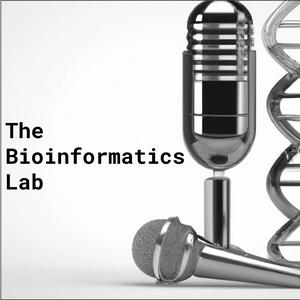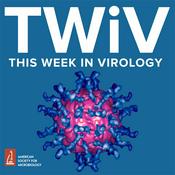71 episodes
EP 68: Bioinformatics Careers, Communication, and Workflow Managers with Cristina Guijarro-Clarke
23/1/2026 | 1h 5 mins.Summary
In this podcast episode, the host and guest Cristina Guijarro-Clarke discuss various aspects of bioinformatics, including the importance of communication, navigating career paths, the role of social media, and the transition from academia to industry. We delve into the significance of workflow managers and the evolution of bioinformatics tools, emphasizing the need for both technical and soft skills in the field. The conversation highlights the collaborative nature of bioinformatics and the future trends shaping careers in this domain.- Ellie's background in microbiology and public health shaped her career in infection prevention. Building a laboratory network in Indiana was a significant project that enhanced public health. Infection preventionists play a crucial role in managing outbreaks in healthcare settings. Genomic sequencing is becoming increasingly important in identifying and controlling infections. Current outbreak detection methods in healthcare are often limited and retrospective. APIC 2024 highlighted the potential of genomic epidemiology in healthcare. Cost-effectiveness is a key factor in adopting genomic sequencing in hospitals. Challenges include financial investment and the need for bioinformatics expertise. Healthcare systems must learn from public health to implement genomic sequencing effectively. The ultimate goal is to prevent harm to patients through better infection control practices.
EP 66: One Health, Genomic Epidemiology, and Antimicrobial Resistance with Anita Kasanga
18/12/2025 | 50 mins.Summary
In this conversation, Anita shares her experiences in critical patient care, emphasizing the importance of timely clinical alerts and collaboration among healthcare professionals. She recounts a specific case involving a 12-year-old girl post-surgery, highlighting the urgency of addressing antibiotic resistance and the need for effective communication within the medical team.- In this episode of the Bioinformatics Lab Podcast, Christie Rose Woodside shares her journey from academia to industry, her experiences during the COVID-19 pandemic, and her decision to walk El Camino with her father. The conversation explores the importance of taking time off for personal growth, the impact of experiences on career choices, and the value of stepping back to gain perspective on life and work.
- In this episode of the Bioinformatics Lab Podcast, Mxolisi Nene shares his journey from a curious kid “scanning soil” with a stick and a broken Pentium II in rural KwaZulu-Natal to a bioinformatician and PhD candidate at the Agricultural Research Council in Pretoria. He walks through his path from animal science into bioinformatics, profiling the gut microbiomes of indigenous village chickens using 16S and metagenomic sequencing, and how wrestling with messy real-world data led him into multi-omics integration and machine learning. Mxolisi explains concepts like feature engineering, neural networks, and ecological “tipping points” in soil ecosystems—showing how combining metagenomic, metabolomic, proteomic, and genomic layers can help predict when an environment is on the brink of collapse, with implications for agriculture, food security, and even disease research.
We also dig into the philosophical side of his work: why the explosion of public omics data makes it almost a moral obligation to use these tools for better outbreak prevention and environmental stewardship, how conferences like PHA4GE in Cape Town and the AI working group are quietly seeding a new generation of multi-omics scientists, and what it feels like to realize that the five-year-old kid obsessed with dirt grew up to do exactly what he was pretending to do—only now with HPC clusters, neural nets, and GitHub.
More Science podcasts
Trending Science podcasts
About the bioinformatics lab
Ramblings on all things bioinformatics.
Podcast websiteListen to the bioinformatics lab, All In The Mind and many other podcasts from around the world with the radio.net app

Get the free radio.net app
- Stations and podcasts to bookmark
- Stream via Wi-Fi or Bluetooth
- Supports Carplay & Android Auto
- Many other app features
Get the free radio.net app
- Stations and podcasts to bookmark
- Stream via Wi-Fi or Bluetooth
- Supports Carplay & Android Auto
- Many other app features


the bioinformatics lab
Scan code,
download the app,
start listening.
download the app,
start listening.






































